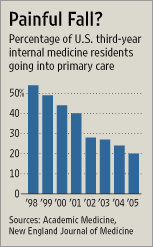Navy Screwing Over its Doctors and Dentists
A shameful 'bureaucratic error."

NBC News (“Navy doctors and dentists are told they owe 3 more years of service after military admits to another record-keeping error“):
Dozens of military doctors and dentists preparing for retirement owe at least three more years of service because of record-keeping errors, the Navy said Friday — the second time in a week that military officials have publicly admitted to discovering administrative oversights that have derailed lives.
At least 65 dentists and physicians with the Navy Reserves have had three to four years of service erased from their records after an error was discovered in how their retirement credits had been calculated, the Navy said. Navy Reserve dentists and doctors provide care to members of any branch of service and their family members.
Four affected physicians and dentists came forward with their plights, speaking to NBC News on the condition of anonymity out of fear of retaliation, days after the Army acknowledged a similar administrative error affecting hundreds of aviation officers.
“They’re trying anyway possible to retain us, even if it is trying to strong-hand us,” one dentist said.
That dentist had invested $2 million in opening a private practice in anticipation of retiring this summer. One of the physicians said he had sold his house and car to move overseas before learning he owed three more years.
“I feel like I’m trapped,” another doctor said. “It’s terrible. It’s unfair. It’s dishonorable.”
To retire with benefits, which kick in at age 60, members of the Reserves must accumulate at least 20 years of qualifying service.
For years, doctors and dentists who participated in the Armed Forces Health Professions Scholarship Program were awarded up to four years in retirement credit if they went on to join the Selected Reserve — the military’s primary source of backup manpower — after fulfilling their active duty service obligations.
The Army, Navy and Air Force used that credit as an incentive to retain health care workers, who were considered to be a “critical wartime shortage speciality,” according to a 2002 Army memorandum issuing guidance on the policy.
While the Army and Air Force confirmed it still allows doctors and dentists to use that credit toward retirement, those in the Navy Reserves started seeing that credit vanish from their records last year.
In January 2022, one physician’s record reflected that he had accumulated 19 years of qualifying service. Six months later, it went down to 16 years.
An official letter, sent by Navy Personnel Command last June and obtained by NBC News, said an “error was discovered” and a “review of all program participants’ records indicated that non-creditable time has been calculated as credible.”
A “data migration issue” within the Navy Standard Integrated Personnel System “prematurely” awarded four years of service credit to officers, Cmdr. Rick Chernitzer, a Navy Personnel Command spokesperson, said in a statement to NBC News.
The error had previously allowed 95 people to retire before they were eligible, Chernitzer said.
The Navy said the affected medical professionals would still get credit for those years served — but only after they had reached the required 20 years, which weakens a much-needed incentive, the health care workers said.
One of the dentists said that there is no benefit to receiving credit after hitting the 20-year mark and that he would not have taken the offer had he known.
“The four years was offered as a recruiting incentive, and to blame a migration error is a bold-faced lie,” he said.
A 2020 report by the U.S. Government Accountability Office, which looked into retention issues, found that military physicians and dentists are generally paid less than those in the private sector.
Commenting on the Army pilots fiasco a couple weeks back, I observed, “While this strikes me as correcting a bureaucratic error rather than a cynical manipulation to force people to stay longer during a retention crisis, the effect is the same.” The original interpretation of tolling two incentive program commitments simultaneously made no sense whatsoever.
Here, though, it sure seems like the Navy is simply screwing over hard-to-retain officers on an absurd pretext. In this case, officers were induced to do something they had no obligation to do—continuing their service the active reserve rather than separating from the Navy entirely—with four years of retirement credit. It stains credulity that those four years were intended to be an add-on after age 60 rather than an immediate credit toward 20 years of service. That all of the other services are still interpreting the credit as advertised rather strongly reinforces that point.
The Navy is indeed acting dishonorably and the Secretary of the Navy, the Secretary of Defense, or the President should correct that forthwith.






Interesting, what a f***-up. My dentist was in the Navy and probably knows something about this, from his fellow sailors or otherwise. I’ll have to ask at my next sppointment
But wait, there is more https://www.navytimes.com/news/your-navy/2023/05/08/navy-error-upends-pay-for-more-than-1200-retirees/
We are looking at an ancient accounting system that was migrated from COBOL~1999 (actually likely still has COBOL at its core, less Y2K). The other Services have equally decrepit accounting in the personnel world.
What the personnel folks (to include recruiters) say is is not a legal obligation (court case about 20 years ago). The official retirement pay calculator says x, but your retirement pay is way less (like 30% less), suck it up (MOAA fought this ~2005 and lost).
For those with no background, a military pension at 20 years is usually 25-35% of the total pay before retirement, including all the allowances (BAS, BAQ/VHA, specialty pay that are not included in calculating retirement pay). Forget anything you heard from your grandpa (or recruiter) about 50%, that ended in the Vietnam era. No ability to “spike” a pension (like in California).
@Richard Gardner: Weirdly, I always understood it to be 50% of base pay, which excludes the various specialties and allowances. It’s still an absurdly good pension compared to even the rest of the Federal government, much less the private sector. (One thing Alabama does right is teacher pensions. You can retire after 30 years making as much as you were teaching.)